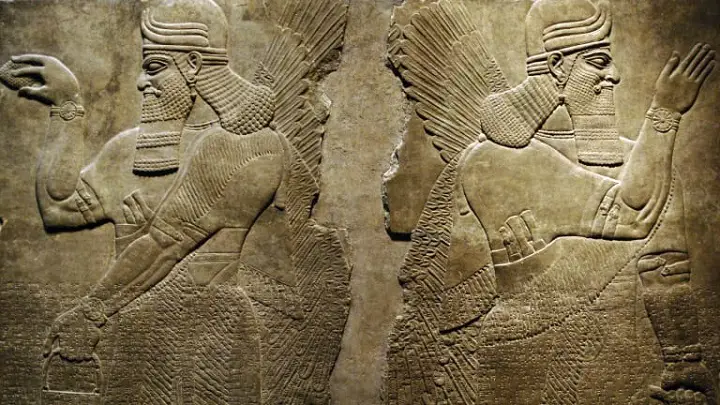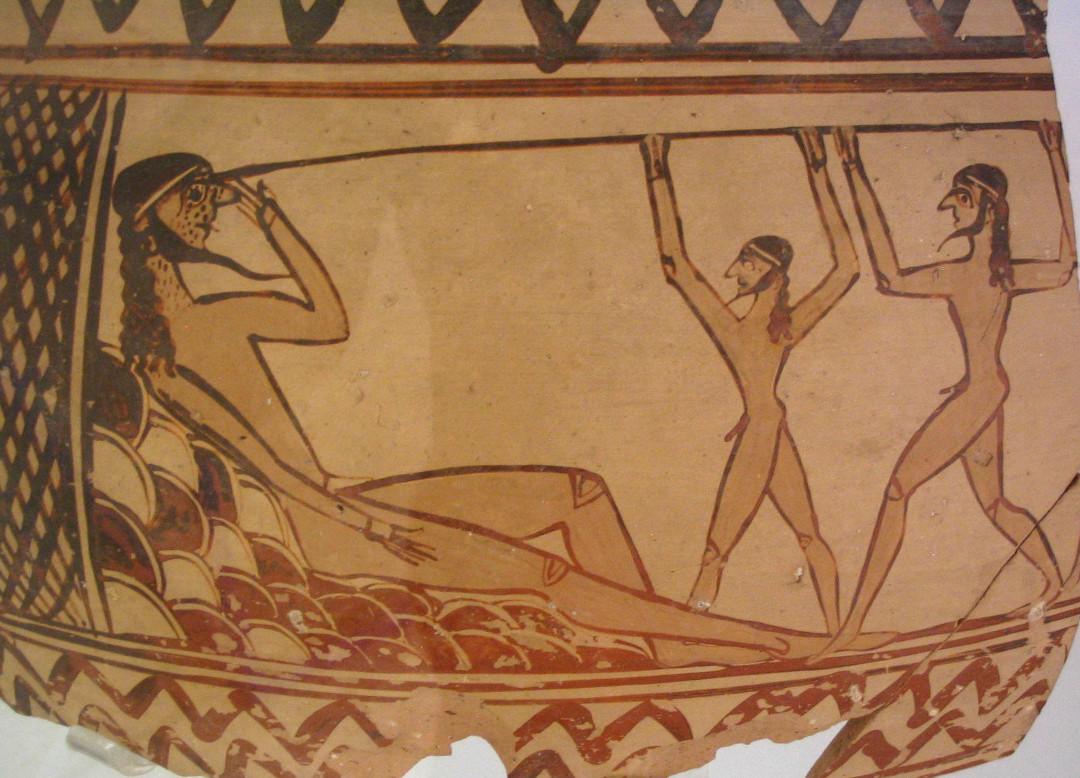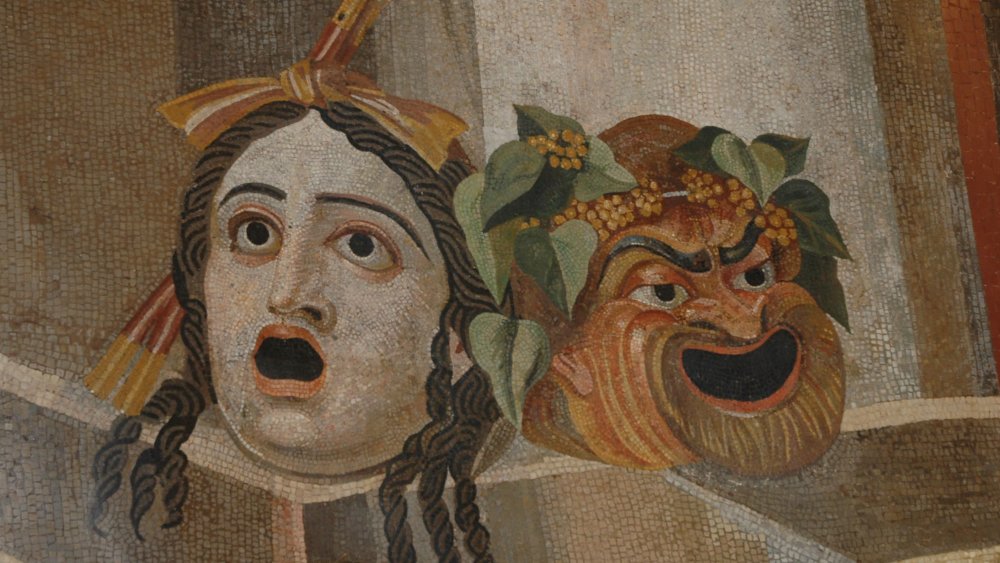The world’s oldest jokes reveal we’ve always laughed at the same things The world's oldest known joke is from 1900 BC Sumeria and it's a fart joke.
The delivery and format of jokes may be subject to fashion, but the ancients laughed at the same things we do today. Don’t believe me? Just check out this list of the world’s oldest jokes. Credit for some of it goes to Wolverhampton University, who in 2008 had a team of researchers scour old manuscripts and even stone tablets for the world’s oldest jokes.
“Jokes have varied over the years, with some taking the question and answer format while others are witty proverbs or riddles,” said Dr Paul McDonald, senior lecturer at the university. “What they all share however, is a willingness to deal with taboos and a degree of rebellion. Modern puns, Essex girl jokes and toilet humor can all be traced back to the very earliest jokes identified in this research.”
Sumeria | 1900 BC

Something which has never occurred since time immemorial; a young woman did not fart in her husband’s lap.
The line is built like a mock-proverb. The phrase “since time immemorial” gives it the cadence of something sacred or cosmic, only to undercut it with an absurdly mundane punchline. What a way to kick off the written record of humor! Because this is the world’s oldest known joke and it is indeed a fart joke.
Egypt | 1600 BC

How do you entertain a bored pharaoh? You sail a boatload of young women dressed only in fishing nets down the Nile and urge the pharaoh to go catch a fish.
Gag about a pharaoh, said to be King Sneferu, first found in 1600 BC on the Westcar Papryus, an ancient Egyptian entertainment text containing five stories about miracles performed by priests and magicians.
The solution to Sneferu’s boredom is a spectacle that reduces an almost divine being to a fisherman — while emphasizing his power (to command such a bawdy display).
Mesopotamia | 1200 BC

Three ox drivers from Adab were thirsty: one owned the ox, the other owned the cow and the other owned the wagon’s load.
The owner of the ox refused to get water because he feared his ox would be eaten by a lion; the owner of the cow refused because he thought his cow might wander off into the desert; the owner of the wagon refused because he feared his load would be stolen.
So they all went.
In their absence the ox made love to the cow which gave birth to a calf which ate the wagon’s load. Problem: Who owns the calf?!
This is perhaps more of a cautionary tale than a joke. We think we’re in control, making careful choices, but in the end, we’re often outsmarted by the unpredictability of life.
Egypt | 1100 BC
A woman who was blind in one eye has been married to a man for 20 years. When he found another woman he said to her, “I shall divorce you because you are said to be blind in one eye.” And she answered him: “Have you just discovered that after 20 years of marriage!?”
The humor isn’t in a punchline as much as in the exposure of transparent bullshit. It’s observational, dry, and socially pointed. The guy pretends he just realized his wife’s “defect” as a pretense for leaving her for someone else. But of course, she’s had the same face for twenty years. Feels very modern.
Greece | 800 BC

This one is from the poetry of The Odyssey by Homer: Odysseus tells the Cyclops that his real name is nobody. When Odysseus instructs his men to attack the Cyclops, the Cyclops shouts: “Help, nobody is attacking me!” No one comes to help.
It’s very dark humor. Odysseus has just maimed someone in cold blood after lulling him into a drunken stupor and misleading him with a lie — and the audience laughs. The humor comes not from justice but from outwitting a monstrous figure using clever phrasing. It’s an early signal of what would become a recurring literary device: wordplay as a form of power.
Athens, Greece | 429 BC
Question: What animal walks on four feet in the morning, two at noon and three at evening?
Answer: Man. He goes on all fours as a baby, on two feet as a man and uses a cane in old age.
The Riddle of Man is one of the most famous riddles of all time. It is found in the Athenian tragedy play Oedipus Rex (also known as Oedipus Tyrannus or Oedipus the King), written by ancient playwright Sophocles and was first performed in 429 BC.
Solving the riddle is what grants Oedipus power — the kingship of Thebes. But the riddle also foreshadows his doom. He understands the stages of human life intellectually, but he fails to understand the shape of his own life until it’s too late.
Egypt | 304 BC–30 BC (Ptolemaic period)

Man is even more eager to copulate than a donkey – his purse is what restrains him.
This joke about prostitution was found on the 28-page long papyrus known as The Instruction of Ankhsheshonq. The papyrus has an introduction and then provides a list of humorous and pragmatic maxims. The world’s oldest listicle?
Rome | 63 BC–29 AD
Emperor Augustus was touring his realm and came across a man bearing a striking resemblance to himself. Intrigued, he asks the man: “Was your mother at one time in service at the palace?”
The man replies: “No your highness, but my father was.”
This one is credited as being said by the Emperor Augustus and may be the oldest example of a “your mom” joke. From a political angle, this joke works because it subtly challenges Augustus’s carefully crafted image. The Emperor was very much about consolidating power and maintaining a virtuous, almost divine image, and this joke punctures that image with a reminder of the not-so-virtuous history surrounding his family.
Greece/Rome | 4th or 5th Century AD

Here’s a funny joke:
The lady of a house had a simple-minded slave. But when she got a peek at just how thick his other head was also, she lusted after him. She put a mask over her face so that he wouldn’t recognize her, and played around with him. Joining her game, he had sex with her. Then, grinning as he usually did, he reported to his master: “Sir, sir, I fucked the dancer and the mistress was inside!”
This is just one of a collection of 265 jokes in the Greek Philogelos (Φιλόγελως: “Laughter Lover” or “Lover of Laughter”). The book categorized jokes into subjects such as teachers and scholars, and eggheads and fools, and is currently considered the world’s oldest joke book. The identity of the author is a bit of a mystery, especially since the book is written in a crude dialect of Greek and contains a lot of bad grammar. Because the celebration of a thousand years of Rome is mentioned in joke 62, the collection perhaps dates from after that event in 248 AD.
A lot of Philogelos’ jokes sound surprisingly modern (and one of them is even clearly Monty Python‘s famous Dead Parrot joke), while others are incomprehensible or dull. More examples of jokes from Philogelos:
Asked by the court barber how he wanted his hair cut, the king replied: “In silence.”
Consulting a hotheaded doctor, a fellow says, “Professor, I’m unable to lie down or stand up; I can’t even sit down.” The doctor responds: “I guess the only thing left is to hang yourself.”
A wife-hater is attending the burial of his wife, who has just died. When someone asks, “Who is it who rests in peace here?,” he answers, “Me, now that I’m rid of her!”
A young man was asked whether he took orders from his wife or if she obeyed his every command. He boasted: “My wife is so afraid of me that if I so much as yawn she shits.”
Wishing to teach his donkey not to eat, a pedant did not offer him any food. When the donkey died of hunger, he said “I’ve had a great loss. Just when he had learned not to eat, he died.”
A miser writes his will and names himself as the heir.
Note that the Philogelos is the oldest existing collection of jokes, and not the oldest joke book ever. Greek rhetorician Athenaeus once wrote that Philip II of Macedon (assassinated 336 BC) paid a social club in Athens to make a compendium of jokes, and at the beginning of the second century BC, the Roman playwright Plautus twice has a character mentioning books of jokes.


Many of the jokes hinge on miscommunication or double meaning. It’s like language was already a toy even 3000 years ago when we were still half monkeys